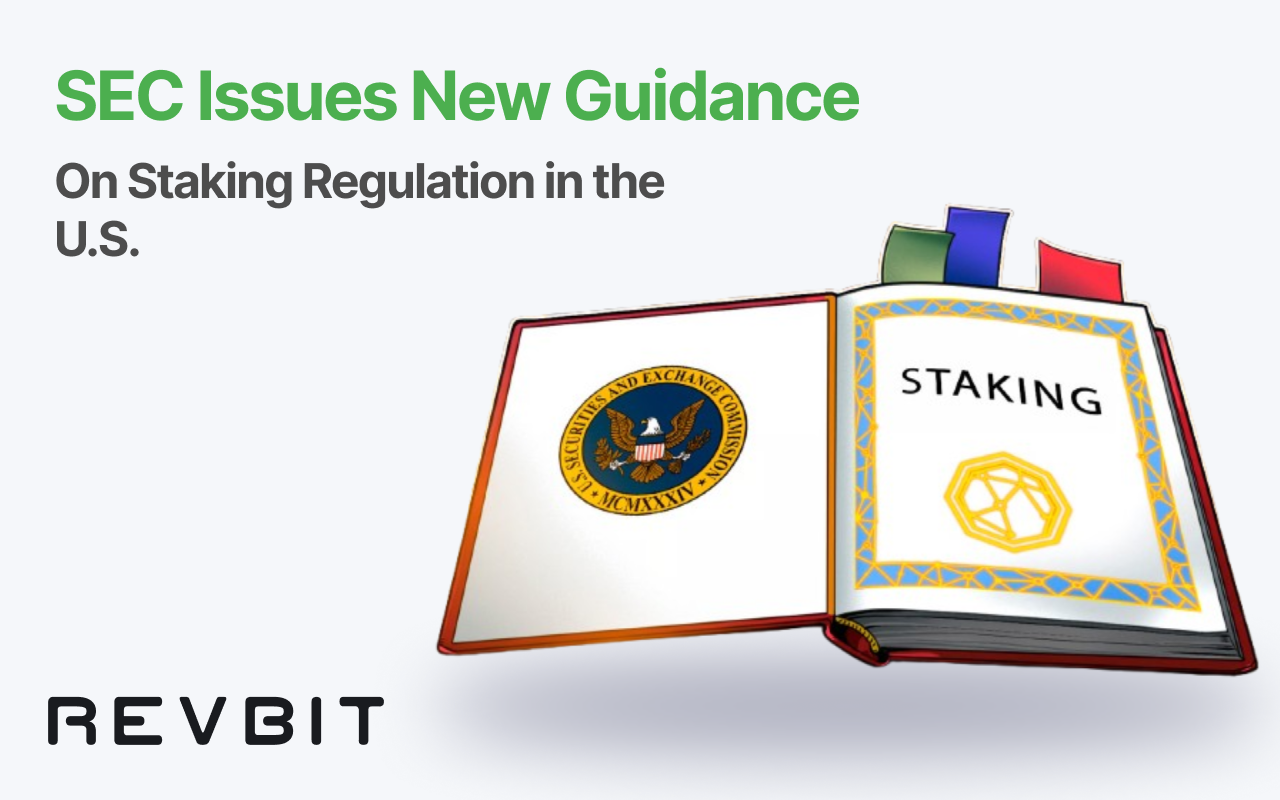
The U.S. Securities and Exchange Commission (SEC) has issued new guidance clarifying that certain cryptocurrency staking activities do not constitute securities transactions under federal law. This development provides significant regulatory clarity for participants in proof-of-stake (PoS) networks and could pave the way for broader adoption of staking services in the United States.
SEC Clarifies Staking Activities
In a statement released on May 29, 2025, the SEC’s Division of Corporation Finance specified that protocol staking activities—where individuals or entities stake their own crypto assets to support PoS network operations—are considered administrative or ministerial in nature. As such, these activities do not involve the offer or sale of securities and are not subject to registration requirements under the Securities Act.
The guidance applies to various staking scenarios, including:
-
Self-Staking: Individuals staking their own assets directly.
-
Delegated Staking: Asset owners granting validation rights to node operators while retaining asset ownership.
-
Custodial Staking: Custodians staking assets on behalf of clients without exerting managerial control over the staking process.
The SEC also addressed ancillary services associated with staking, such as slashing coverage, early unbonding options, and customized reward schedules. These services are deemed administrative and do not alter the non-security status of staking activities.
Industry Response
The crypto industry has largely welcomed the SEC’s clarification. Alison Mangiero, head of staking policy at the Crypto Council for Innovation, described the guidance as a “major step forward” for U.S. crypto regulation. She emphasized that recognizing staking as a fundamental blockchain function, rather than an investment contract, is crucial for the industry’s growth.
Lorien Gabel, CEO of staking services firm Figment, noted that the guidance provides clear parameters for companies offering staking services, including pooled and custodial staking, thereby reducing regulatory uncertainty.
Implications for the Crypto Market
The SEC’s stance is expected to have several significant impacts:
-
Increased Participation: With reduced regulatory ambiguity, more individuals and institutions may engage in staking activities, enhancing network security and decentralization.
-
ETF Developments: The clarification could accelerate the approval of Ethereum-based exchange-traded funds (ETFs) that incorporate staking features, as firms like Bitwise and Grayscale have pending applications.
-
Regulatory Harmonization: The SEC’s approach may influence other jurisdictions to adopt similar stances, promoting global consistency in crypto regulation.
However, it’s important to note that the SEC’s guidance does not extend to all staking models. Practices like liquid staking and restaking, where providers have control over staking decisions, may still be subject to securities laws.
Conclusion
The SEC’s recent guidance marks a pivotal moment in the regulatory landscape for cryptocurrency staking in the United States. By delineating the boundaries of what constitutes a securities transaction in the context of staking, the SEC has provided much-needed clarity that could foster innovation and growth within the crypto industry.